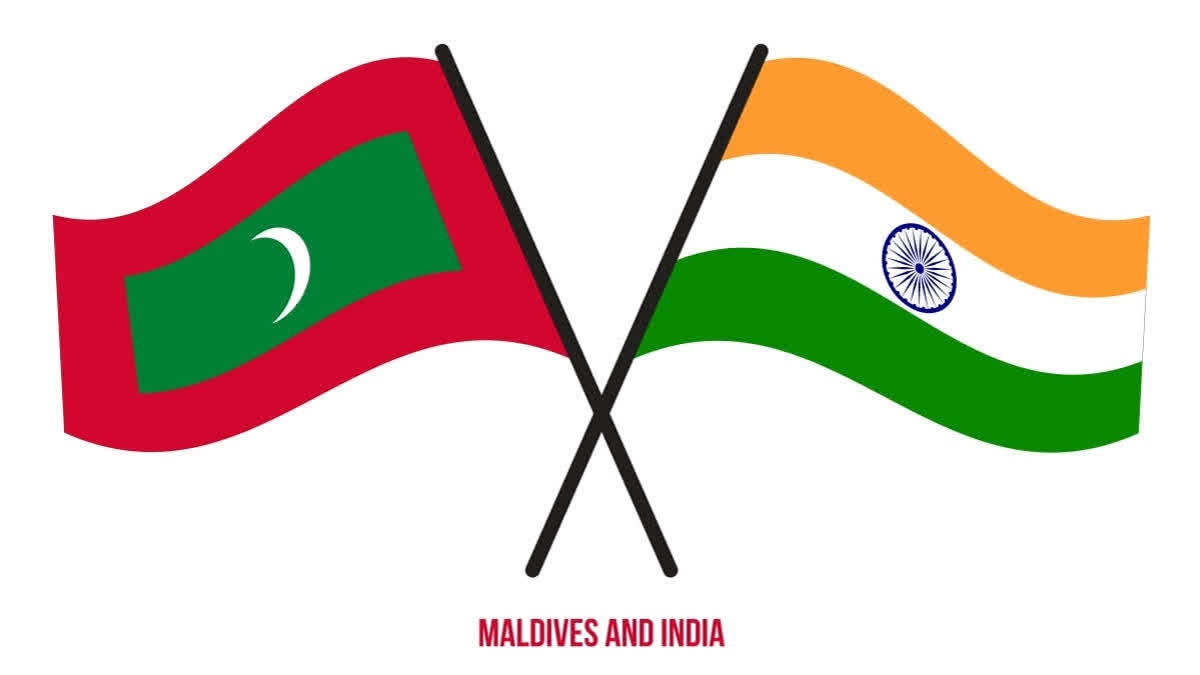New Delhi: The Maldives’ estimate that it will get Maldivian rufiyaa (MVR) 1.6 billion (around $104 million) in foreign aid from India for its propose state budget in 2025 is yet another sign of how ties between New Delhi and Male are again moving forward after having deteriorated with the election of Mohamed Muizzu as the President of the Indian Ocean archipelago nation last year.
The expected Indian aid will comprise around 72 per cent of the allocated MVR 2.5 billion as foreign grant aid from friendly countries in the state budget for 2025 totalling MVR 56.6 billion that the Maldives government has presented to the country's parliament for approval.
According to a report in the Maldivian news website Edition.mv, China is expected to be the second largest foreign aid donor to the Maldives. It is estimated that Maldives would receive MVR 502 million from China next year, while Japan is third on the list with 47 million.
"Pakistan, Italy, Saudi Arabia and The Netherlands are also on the list of potential donors for 2025," the report stated.
The Maldives' big expectation from India is yet another sign of how ties between the two South Asian neighbours are improving after having gone deep south with Muizzu assuming office as President in November last year. Muizzu had won last year's presidential election on a pronounced anti-India plank. He ran an 'India Out' campaign in which he called for the withdrawal of some Indian military personnel present in his country. These personnel, numbering less than 100, were primarily involved in humanitarian assistance and disaster relief work in the Indian Ocean archipelago nation. However, after assuming office, Muizzu made a formal request to India to withdraw these personnel. These personnel have now been replaced by civilians from India.
The Maldives’ foreign policy under President Muizzu has undergone notable shifts. He chose Turkey for his first state visit, breaking with predecessors who prioritised India. His government also declined to renew an Indian hydrography agreement, citing security concerns, and permitted a Chinese vessel into Maldivian waters despite India's protests. Tensions rose further when Maldivian politicians criticised Prime Minister Narendra Modi over perceived competition in the tourism sector, sparking backlash.
However, in March this year, in what can be viewed as a sudden turnaround from his pronounced foreign policy steps against India, Muizzu said that India will continue to be the closest ally of his country and expressed the hope that New Delhi will provide debt repayment relief to the Indian Ocean archipelago nation.
In an interview with a news outlet, Muizzu also claimed that he had never taken any action or made any statement that would affect ties between the Maldives and India. "It is not nice to dismiss or disregard aid from one country to another as useless," a report quoted Muizzu as saying. He also expressed the hope that India will accommodate debt relief measures in the repayment of the hefty loans that his country's consecutive governments have taken over the years. India acceded to this request.
He followed this up by visiting New Delhi in June to attend the swearing-in ceremony of Prime Minister Narendra Modi for the third term. During India's Union Budget 2024-25 presented in July, development aid for the atoll nation remained unabated. The development aid allocated for the Maldives is Rs 400 crore, the same as last year.
Then in August, External Affairs Minister S Jaishankar visited the Maldives during the course of which he inaugurated several India-funded infrastructure projects and announced some new ones as well.
And then, in October, Muizzu made his first bilateral visit to India. Apart from a number of agreements being signed, including on defence and security cooperation, India and the Maldives also released a joint document titled 'A Vision for Comprehensive Economic and Maritime Security Partnership'.
"The leaders acknowledged that it was an opportune time for both sides to chart a new framework for cooperation with an aim to comprehensively transform the bilateral relationship to a Comprehensive Economic and Maritime Security Partnership, which is people-centric, future-oriented and will act as an anchor of stability in the Indian Ocean Region," the document states.
Now, the Maldives government’s expectation from India for the upcoming budget comes after New Delhi provided substantial financial aid this year to the atoll nation for overcoming its economic crisis. India agreed to a rollover of $50 million due in September and a currency swap agreement was arranged for $400 million and Rs 30 billion during Muizzu's visit in October.
"Muizzu is trying to adjust his policies according to the economic realities in his country," Anand Kumar, Associate Fellow at the Manohar Parrikar Institute of Defence Studies and Analyses and author of the book Multi-party Democracy in the Maldives and the Emerging Security Environment in the Indian Ocean Region, told ETV Bharat.
"India is trying to help the Maldives out of financial trouble as much as it can," Kumar said. “We are trying to help them out under our Neighbourhood First Policy.”
The basic objectives of this policy are: ensuring peace and stability in the region by resolving conflicts and preventing the escalation of disputes; promoting economic cooperation and integration with neighbouring countries to foster mutual growth and development; enhancing connectivity through infrastructure projects such as roads, railways, and ports to facilitate trade and people-to-people contact; strengthening cultural and people-to-people ties through educational exchanges, tourism, and cultural diplomacy; and engaging in regional forums and organisations like South Asian Association for Regional Cooperation (SAARC) and Bay of Bengal Initiative for Multi-Sectoral Technical and Economic Cooperation (BIMSTEC) to address common regional challenges.
Meanwhile, in yet another sign of bilateral ties going forward, the Maldivian military has initiated joint training exercises with Indian forces. The Indian High Commission in the Maldives announced on the social media platform X that the seventh edition of the ‘Ekatha’ exercise began on Wednesday. The High Commission highlighted that this exercise aims to deepen collaboration between the two nations in tackling shared maritime challenges.



